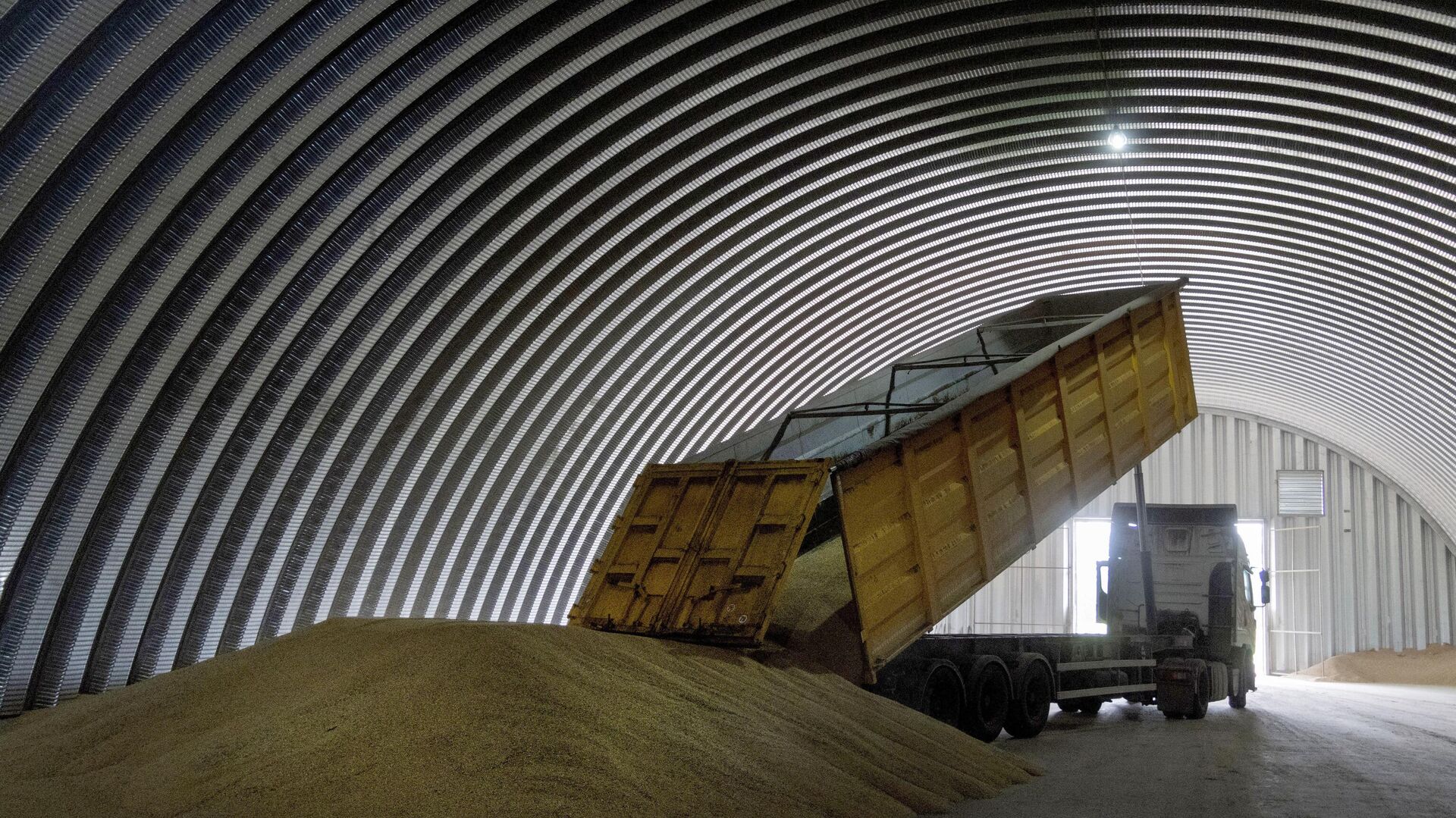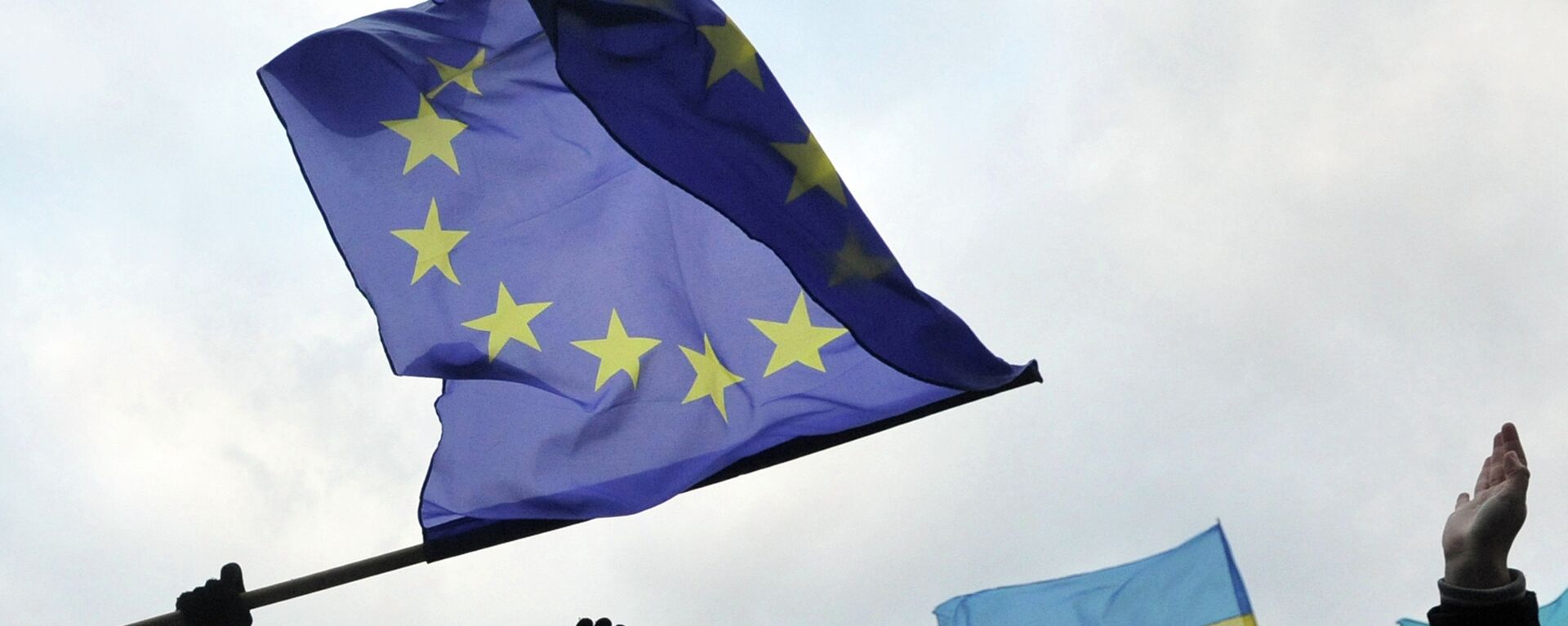https://sputnikglobe.com/20240623/ukraines-accession-to-eu-to-cause-difficulties-for-blocs-agriculture---polish-fm-1119069237.html
Ukraine's Accession to EU to Cause Difficulties for Bloc’s Agriculture - Polish FM
Ukraine's Accession to EU to Cause Difficulties for Bloc’s Agriculture - Polish FM
Sputnik International
Ukraine's accession to the European Union will be a problem for the bloc's common agricultural policy, Polish Foreign Minister Radosław Sikorski said.
2024-06-23T04:34+0000
2024-06-23T04:34+0000
2024-06-23T04:34+0000
world
ukraine
poland
moldova
european union (eu)
radoslaw sikorski
european commission
https://cdn1.img.sputnikglobe.com/img/07e8/03/1c/1117597853_0:161:3071:1888_1920x0_80_0_0_4fe8986d6b42ccbd511ff47029a28b48.jpg
"Of these thirty-odd provisions that we will negotiate, I expect that the most difficult … will be the topics of agriculture and transport," Sikorski said in an appearance on the TVN channel. He noted that Ukraine has "giant farms" on "very fertile land," which "will be a problem for the entire common agricultural policy of the European Union." The foreign minister added that the worst thing for Ukraine would be the looting of Western financial aid.On Friday, the EU Council approved the beginning of negotiations on the accession of Ukraine and Moldova starting June 25. Ukraine was granted a temporary duty-free trade arrangement with the European Union in June 2022. In March 2022, the EU additionally launched green corridors to facilitate the transit of Ukrainian grain to the world market amid Russia's special military operation. However, the cheap grain from Ukraine ended up flooding EU markets instead, prompting outrage among local farmers.In March 2023, Bulgaria, Hungary, Poland, Romania and Slovakia asked European Commission President Ursula von der Leyen to introduce measures to counteract the negative effects of the increased imports of Ukrainian agricultural products. In May 2023, the European Commission banned the sale of Ukrainian wheat, maize, rapeseed and sunflower seed in those five countries until June 5 in a bid to "alleviate logistical bottlenecks," but allowed their circulation in other European markets. The ban was later extended to September 15.
https://sputnikglobe.com/20240607/eu-commission-to-recommend-starting-eu-accession-talks-with-ukraine-this-june---reports-1118827396.html
ukraine
poland
moldova
Sputnik International
feedback@sputniknews.com
+74956456601
MIA „Rossiya Segodnya“
2024
Sputnik International
feedback@sputniknews.com
+74956456601
MIA „Rossiya Segodnya“
News
en_EN
Sputnik International
feedback@sputniknews.com
+74956456601
MIA „Rossiya Segodnya“
Sputnik International
feedback@sputniknews.com
+74956456601
MIA „Rossiya Segodnya“
bloc’s agriculture, ukraine's accession to eu, polish foreign minister radosław sikorski
bloc’s agriculture, ukraine's accession to eu, polish foreign minister radosław sikorski
Ukraine's Accession to EU to Cause Difficulties for Bloc’s Agriculture - Polish FM
MOSCOW (Sputnik) - Ukraine's accession to the European Union will be a problem for the bloc's common agricultural policy, Polish Foreign Minister Radosław Sikorski said.
"Of these thirty-odd provisions that we will negotiate, I expect that the most difficult … will be the topics of agriculture and transport," Sikorski said in an appearance on the TVN channel.
He noted that Ukraine has "giant farms" on "very fertile land," which "will be a problem for the entire common agricultural policy of the European Union."
The foreign minister added that the worst thing for Ukraine would be the looting of Western financial aid.
On Friday, the EU Council approved the beginning of negotiations on the
accession of Ukraine and Moldova starting June 25.
Ukraine was granted a temporary duty-free trade arrangement with the European Union in June 2022. In March 2022, the EU additionally launched green corridors to facilitate the transit of Ukrainian grain to the world market amid Russia's special military operation. However, the cheap grain from Ukraine ended up flooding EU markets instead, prompting outrage among local farmers.
In March 2023, Bulgaria, Hungary, Poland, Romania and Slovakia asked European Commission President Ursula von der Leyen to introduce measures to counteract the negative effects of the increased imports of Ukrainian agricultural products. In May 2023, the European Commission banned the sale of Ukrainian wheat, maize, rapeseed and sunflower seed in those five countries until June 5 in a bid to "alleviate logistical bottlenecks," but allowed their circulation in other European markets. The ban was later extended to September 15.



